Tommy Cash Dropped a New Single, but Who Really Gives a Shit?
Watch the new music video below.
Stay informed on our latest news!
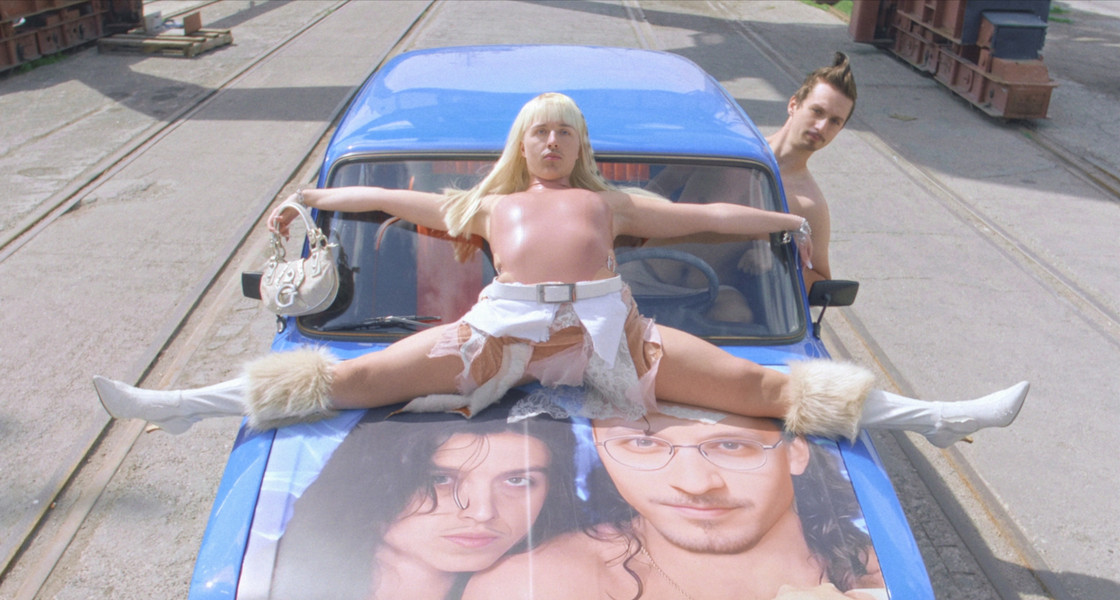
Watch the new music video below.
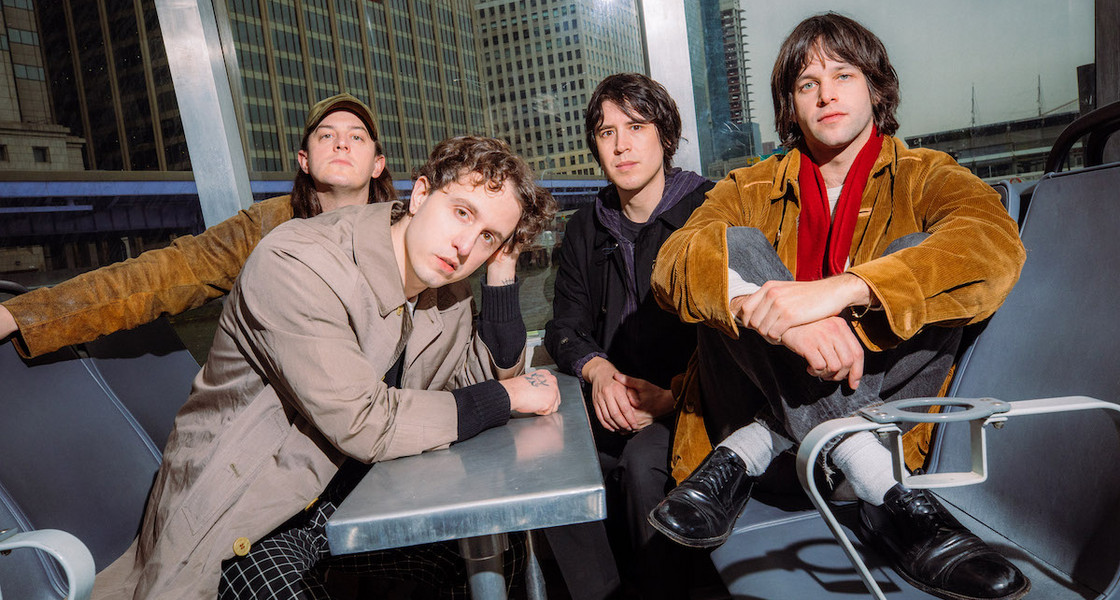
Back then, I was an insufferable, pretentious asshole who based my entire music taste on the post-punk influenced dream-pop Brooklyn scene of the 2010s dominated by Captured Tracks, an independent record label founded by Mike Sniper. While a tween across the country, miles away from the epicenter, I desperately wished to be at the label’s 5-year anniversary party at The Wick, a now defunct venue in East Williamsburg. It seems to be the only time Shitfather existed — a cover band created by signed all-stars Mac DeMarco, Zachary Cole Smith of DIIV, Jack Tatum of WIld Nothing, and Dustin Payseur of Beach Fossils.
In 2008, Payseur, filled with naive dreams of making it in music, relocated from North Carolina to New York City. There were no other backup plans, no considerations of giving up. It was his wide-eyed hope that got him to where he stands today — as the mastermind behind Beach Fossils, a critically acclaimed band at the forefront of atmospheric indie-rock. Today, they released their fourth album on Payseur’s own record label Bayonet — or fifth, if you count the jazz piano ballad covers of their previous songs. And here I am, two years out of college, listening to Bunny thinking shit, this is still good music.
As soon as our Zoom conversation started, Payseur reminisced about the early years of the band, saying, “There’s a feeling of lawlessness, where it feels self-governed. When you're playing a big venue with huge staff and a lot of rules, the whole thing feels buttoned up. But when it's something run by the scene for the scene, there's an energy in the room that you can't beat.” Waves of sweaty bodies colliding, stoned crowd surfers, and melancholic melodies echoing through blown-out amps at DIY venues like Death By Audio, Glasslands, and 285 Kent until the city cracked down on them, unable to accommodate their growing fan base. It’s a story we often hear about music scenes in New York, but this time it truly was special. To this day, they are still the best of friends, attending each other’s weddings and arranging playdates for their toddlers. "We became close because we were all starting out at the same time. It was a first for all of us—releasing records, going on tour. We shared a collective experience. We were doing it together, albeit separately."
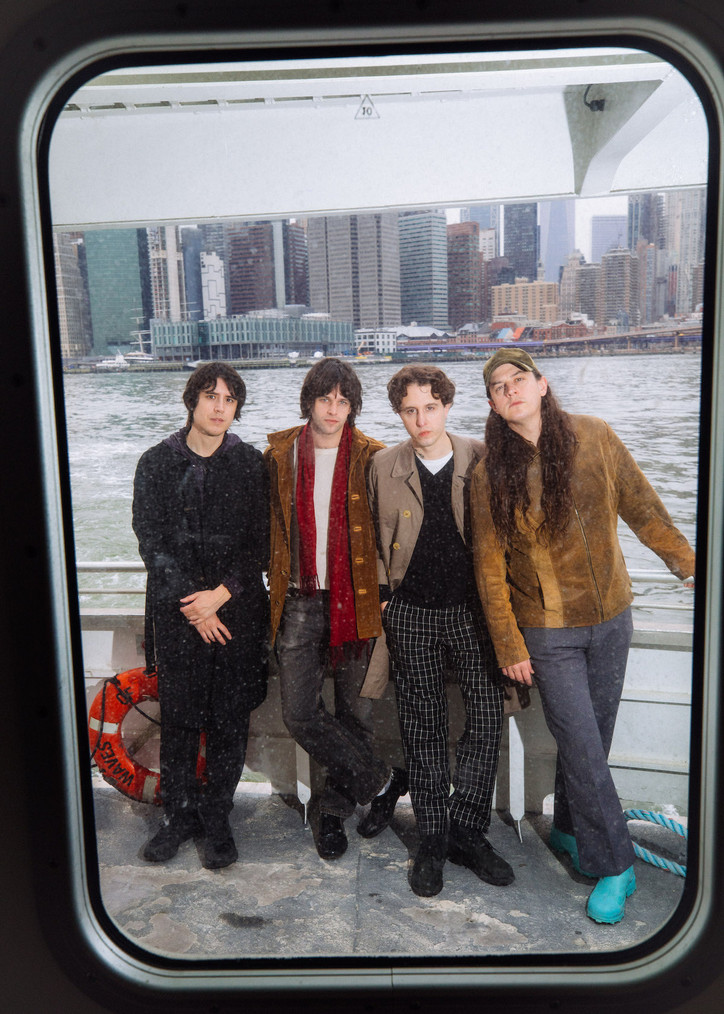
It's a Monday afternoon, following Beach Fossils’ Australian tour, and Payseur — who loves the coffee, food, and petting the kangaroos, although he thinks it’s “too invasive” to go in their pouches — has just woken up. He sits in his Brooklyn basement studio wearing a pair of bulky headphones over his unkempt hair. The perfect setup for those unexpected moments when the need to write music arises. It’s basically in his DNA. His grandfather is a Latin percussion artist who still performs live, his mother writes personal folk-rock inspired by Patti Smith and Neil Young, his father was in a band called Pompous Fuckheads with lyrics that satirize everything, and his older sister transformed his music taste from nu metal to 80s UK goth, industrial, and punk.
Inside Payseur’s studio is a small audience made up of Beach Fossils’ mascots: a panda, lamb, Gumby, Felix the Cat, and a vintage toy bunny. They keep him company as the process of working on music for sometimes 17 hours a day can become isolating. The bunny, with its white fur, bright blue eyes, rosy cheeks, and alerted ears, is the tallest among them. Payseur found her on eBay while searching for things to draw in an attempt to expand his artistic skills. Immediately upon seeing her, he knew she would be the next album cover. He shares his fondness of her, saying “It’s standing so proud — it’s vulnerable but strong, which goes back to the whole point of making music.”
Bunny remains familiar while pushing the boundaries of Beach Fossils’ origins. The album entangles the whimsical melodies of What A Pleasure and lush texture of Somersault with clear, delicate vocals in the choruses for the first time. Regarding his decision to push himself out of his comfort zone, Payseur says, “I wanted to make something that was pop music, but not in the traditional sense. Over the past few years, I found myself listening more and more to music where the chorus is a big moment that jumps out. I was inspired by that which is funny because it’s the most obvious thing, that’s like songwriting 101.” He then specifically cites Oasis’ “soaring choruses” as a point of reference. The outcome is an album that is dreamier and poppier than ever before while maintaining the nostalgic, jangly sound Beach Fossils is known for. Payseur admits, “I love those early Beach Fossils records and I'm also like that cliche, annoying person that says ‘I only like their early stuff’ about every band that I listen to. I know people say that about us all the time. I see it in the comments when we're putting out new songs. I know that feeling, I totally do — when your favorite band changes their sound, it sucks and you’re, like, ‘I want more of the stuff that I love.’”
Part of this growth is due to Payseur opening up the writing process to his long-term bandmates Jack Doyle Smith and Tommy Davidson. “Sometimes I get stuck and Jack and Tommy are good at knowing where things should go next. If I've already got something that's been worked on and I feel tapped out, they can come in and breathe new life into it,” Payseur says. This collaboration started with Somersault, the baroque-pop album featuring string and woodwind arrangements, as well as current drummer Anton Hochheim.
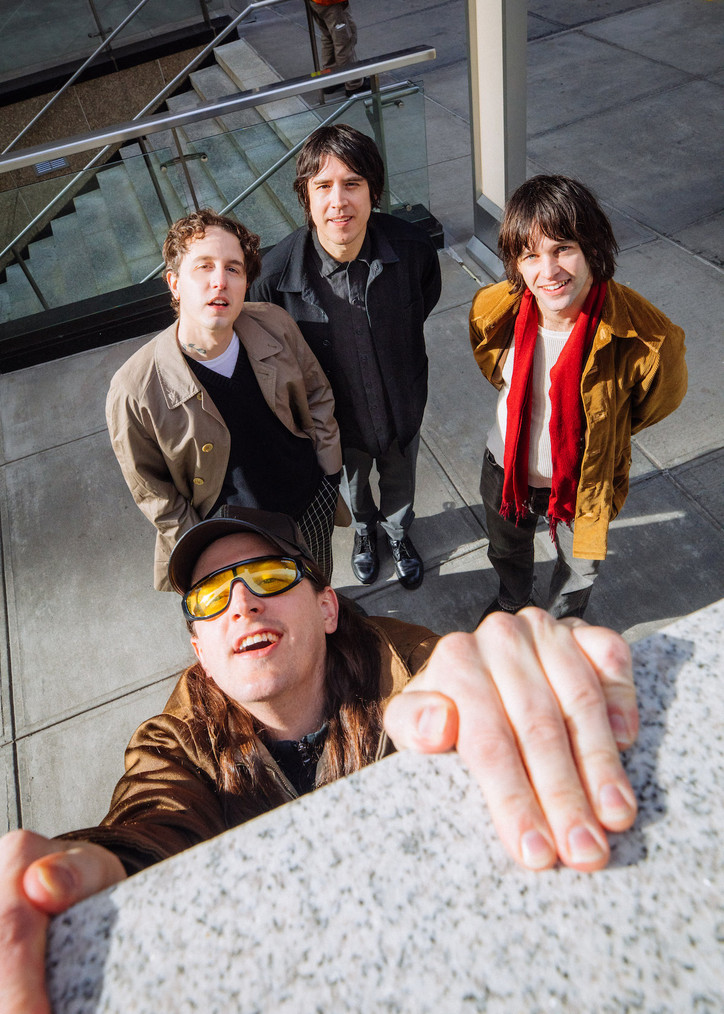
“It felt natural because I'm so close with them. They're my best friends,” he continues about their involvement. “When we're not on tour, practicing, or doing anything band-related, we're still hanging out all the time. The music is personal, but so are the relationships I have with them.” This is evident through their videos. “Run to the Moon” features Payseur and Smith running through Malibu Mountains buttnaked, which Payseur reveals was just part of their spontaneous day; “Seconds” is a compilation of tour footage from live shows to backstage play fights to karaoke nights. “We didn't go into it consciously being like, ‘we're going to write music together.’ It was from being on tour, always being together, practicing, and sound checking. We were constantly jamming and started taking voice memos, thinking ‘oh, this should just be a song.’”
Along with the newer, matured sound, Bunny contains Payseur's most vulnerable lyrics yet disguised in abstract, expressionist poetry. The themes of drugs, depression, love, and loss are presented with lyrics like, “Get me out of this place / ‘Cause if I don’t I feel like I may drown / Tough / Love / Drink / Drunk / You’re still on my mind / Turn away / And leave it all behind” and “Coffee and Ativan / My thrills are getting cheap I spend all day in bed / I dream but I can’t sleep / Anything is lost / Anything is free / Anything is anything / To me.” Payseur shares, “I talk a lot about my mistakes because it's a way that I learn and grow, so I can listen and see it from an outside perspective. Those are the things that are universal — we're constantly making mistakes and that's what life is. If I'm honest about this, other people are going to hear it and there's going to be a way that we can grow collectively, which is beautiful.” Although this time around, he found it a bit harder to commit to this candidness as he is now a father. “She's going to grow up listening to these songs and when she’s old enough to understand what I'm talking about, she's going to have questions. That'll probably start a healthy dialogue, but at some points, I was wondering if I should take this lyric out or change that because I don't want to say something that I'm going to potentially regret, have to explain in a way that I don't know how, or set a bad example.”
Entering fatherhood may seem like it would interfere with maintaining a band, but this new chapter actually helped Payseur with his writing process. Behind him in the studio is his daughter's basketball hoop. He threw balls into the hoop while randomly singing with Bunny’s instrumental on loop. When something good came out, he’d run to the mic, record the lyric, then continue dunking. She also rejuvenated his emotional connection to music. “There was a while — from years of touring, being in the music world, having a label, having a wife that works at a label, and having all of my friends in bands — I started to get jaded with music. Sometimes I can become a hater, and I get to a point where I'm like, ‘everything sucks, there's too much music, we need to chill, I'm done.’” Payseur shares, “I'm constantly playing [my daughter] music all the time — every single genre I can imagine and everything that I love. Seeing how it resonates with her is almost like seeing the music I love from a new perspective and having a new relationship with it. When I sit down to write a song it makes me feel more intentional.”
With guitars like Beach Boys’ “All I Wanna Do,” Cocteau Twins’ “Lorelei,” and The Jesus and Mary Chain’s “Dirty Water,” Bunny proves that Beach Fossils has always been more than just a part of the Brooklyn scene. The album is a continuation of current underground bands experimenting with pop and pop acts experimenting with underground sounds. In Payseur’s own words, “Bunny is the past six years of my life rolled up into twelve songs — honestly, I don’t even know how many songs there are. I should know. I’m fucking up my own quote.”
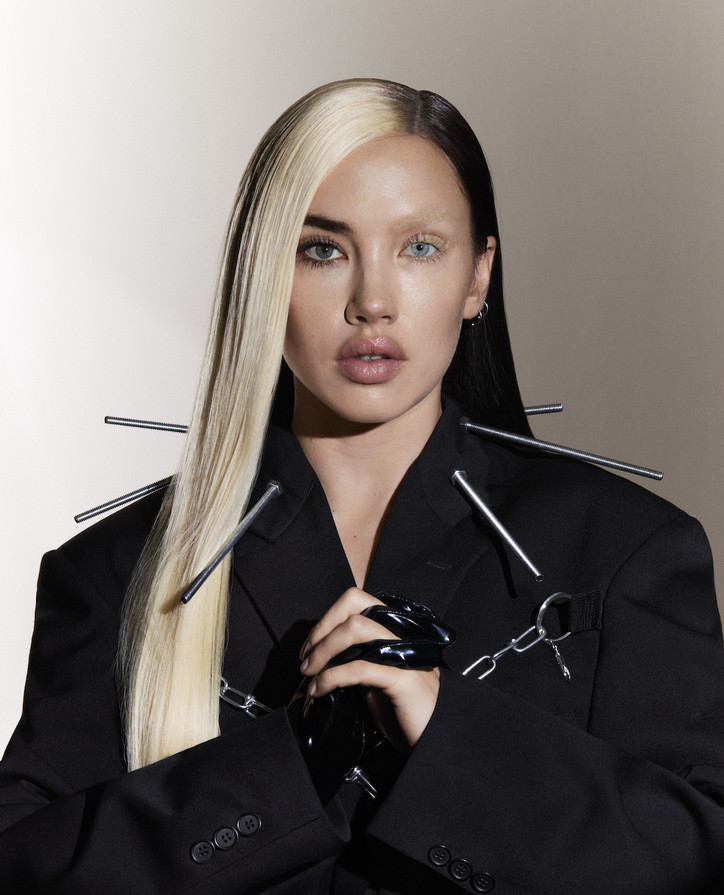
Blackhaine— What was the process of making your new album like?
Isamaya Ffrench— I've always been very musical, and I play classical guitar and piano. Music is the main influence for all of my work. The album was written collaboratively three years ago now during lockdown, and it's hard to hold on to a piece of work for so long. I'm very much about doing a project, putting it out, and moving on. This has been one of the hardest things I've done because I've had to sit with it.
I've held onto my work a few times like you describe, and it always feels like a struggle. If I’ve written about a specific emotion or experience, and then I release it and have to maintain a certain level of detachment, I don't necessarily want to go back to it. Whereas I feel like you work very impulsively. It's about taking risks, which is a hard thing to learn.
Definitely. The music came intuitively. Everything I make has got to make sense as a story. I wouldn't say I like one style, but it has to be stylistically very thorough.
I completely get that. You build universes.
For me, it’s about universe building, and also about real human narratives. Because I used to do a lot of special effects and body horror – and I still always get asked about fantasy and gore, but neither of them interest me – I’m more interested in how to express cerebral concepts and psychology through my work. I used to be in an experimental theater company where I did a lot of dancing, and those were some of the best years of my life. Do you have a dance background?
I went to the Northern School of Contemporary Dance for a year and I got kicked out. I was just living my life. Dance is so abstracted naturally, and it's so physical, that I never really saw the point of it. I was more interested in how people move without it being super contrived and dressed up.
I know that a friend gave you a book on the Japanese art of butoh. What were your first impressions when you encountered it, and why did it move you so much?
I suppose it was because it was what I was doing already in my bedroom, just moving around – mad, weird stuff. Butoh wasn't exactly the same, but it was akin. It spoke the same language, and it just clicked. The history of it comes from such a dark place. There's the Ash Walk that they do, from after the nuclear bomb has gone off, and it's as if you're walking on the ash. When I found butoh, I could see that it is a dance in a sense, it's just not dressed up and put on stage.
It's an exploration of an identity, or a mental and a physical state.
That is what I found. I've still not arrived to an absolute identity with it, and I hope I don't. I was dancing last night, and I just spent 20 minutes banging my head against this wall in the hotel room. I heard that children do it in the womb, and I think that might be what I was trying to recreate last night.
Have you ever come across the Canadian choreographer Marie Chouinard? She’s one of the best I’ve ever encountered. I saw her show at Sadler's Wells in London years ago, and it was so shocking for me. The dancers physically personified people with serious mental health issues and physical disabilities. I initially felt very uncomfortable, but I gradually realized the incredible attention to detail that these dancers had. They had studied people with mental health issues and physical disabilities deeply, and were able to transform the experience into total awe. I think you bring that to the table as well. You shine a light on some very disturbing concepts and make them beautiful.
The biggest thing for me is that the work doesn't actually have to be beautiful or whatever. It can just be.
You've got a very strong aesthetic. There are definite threads through all of your work. I'm not interested in assuming one particular aesthetic, whereas I feel like you have a much stronger identity. Are you quite protective over the way you are perceived?
I wanted to build an aesthetic very early on because I didn't know what I wanted to say. I think it's essentially a subconscious aid. I've since realized that it's impossible to maintain. I just want to wear suits now, and Ann Demeulemeester. That's what I love. I want to dress like an office worker. I've always seen costumes as an extension or an abstraction.
I was reading this book recently, called Football Delirium. The psychoanalyst argues that football offers us manageable doses of self-elected madness that are actually essential for a sane life, the paradox being that madness is simultaneously therapeutic. Do you feel like there's an element of that when you’re banging your head against the wall in your work?
Without a doubt. You need the mania, because otherwise, it's just recreation, isn't it?
I've been reading about people who speak in Tongues, who describe God speaking through them. Apparently the thinking part of the brain, which deals with language, is totally switched off, and the regions involving consciousness are active. They're channeling this thing which they have no control of, and this truth pours out of them. They describe it as feeling like a place of comfort. You've mentioned that you can be quite an anxious person, but then when you're performing, that all goes out the window and you just go for it.
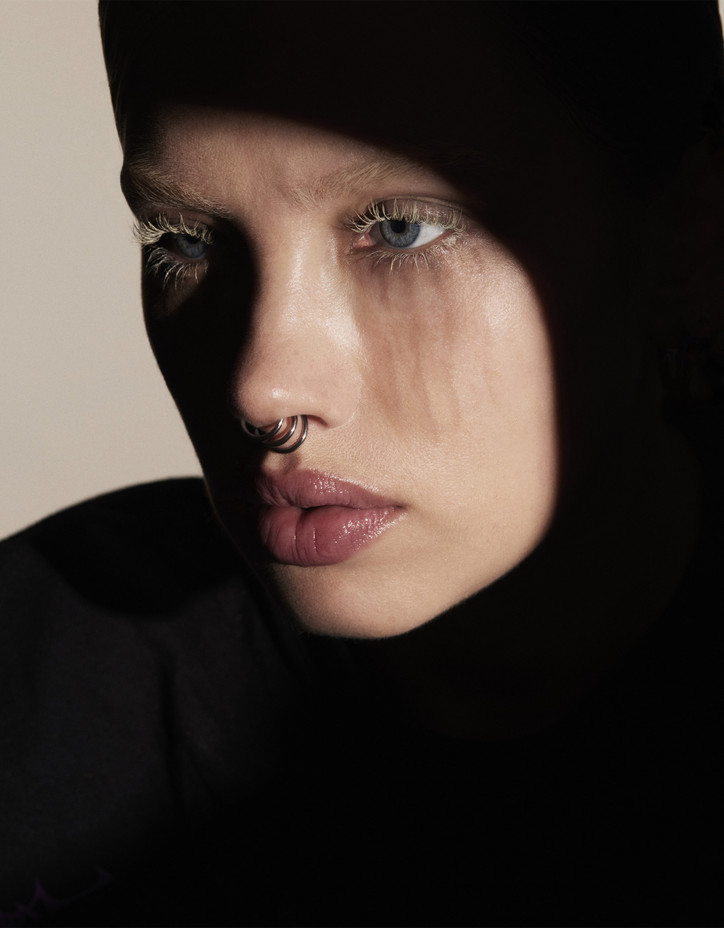
FULL LOOK by ISAMAYA FFRENCH
You've diagnosed it well. I get this when I write as well, because it just comes out. But yeah, I ultimately do things that I would never ever have dreamed of when I’m performing. I've said mad stuff, or I've jumped into the crowd. It can feel like there's another version of you. It's the immediacy as well. I don't have time to overthink and everything just has to be blind. It is about absolute truth.
We're taught about taboo subjects, and it can be difficult to address them without judgment and in a free space. Historically, butoh deals with taboos. Do you feel that you deal with them too?
I definitely do. There are songs that I've written, like “Womb,” where I'm definitely talking about something that I've gone through. I’m dealing with birth and an experience with an ex-partner. It's abstracted enough that I feel like each person can drag the resolution out of it in a different way. People have said to me, “‘I've had the same experience. Thank you for writing a rap like that, because no one really talks about it.”’ I get censored for saying “'fuck,”' but if I talk about having an abortion, then people recognise the value in it.
Mike Tyson has talked about how anger can light a fire, and it can put food on the table, but it can also destroy you. He created a very simple metaphor for anger, and I think that's what your music and lyrics do. There's simplicity to both, but there are real hidden depths to them that are undeniable.
Someone years ago told me that the only reason you get angry is because your needs aren't being met. She said that anger is a shield, and that's something I've always remembered. Anger is like armor, essentially, and I think that the more over the top the armor or aggression is, the more everyone can see what's really going on. It exposes the vulnerability.
I get angry when I’m not able to be completely free in what I do. Looking at your work has moved me more than most things do. And I haven't really felt connected to a body of work in the way that I am with your work for quite a long time. And I think that's probably because, ultimately, we're both truth seekers.
The act of struggle is everything. I want to talk about birth and death at the same time, and then in the midst of that is struggle. In my work, I want to reach and pull my bones out of my body.
I am constantly dealing with ideas around death. I’m searching for meaning, but I realized recently that I might be looking in the wrong place. Sometimes I wonder if we are going to realize that we were there all along, and it’s the journey that we’ve all been looking for — the journey is the meaning.
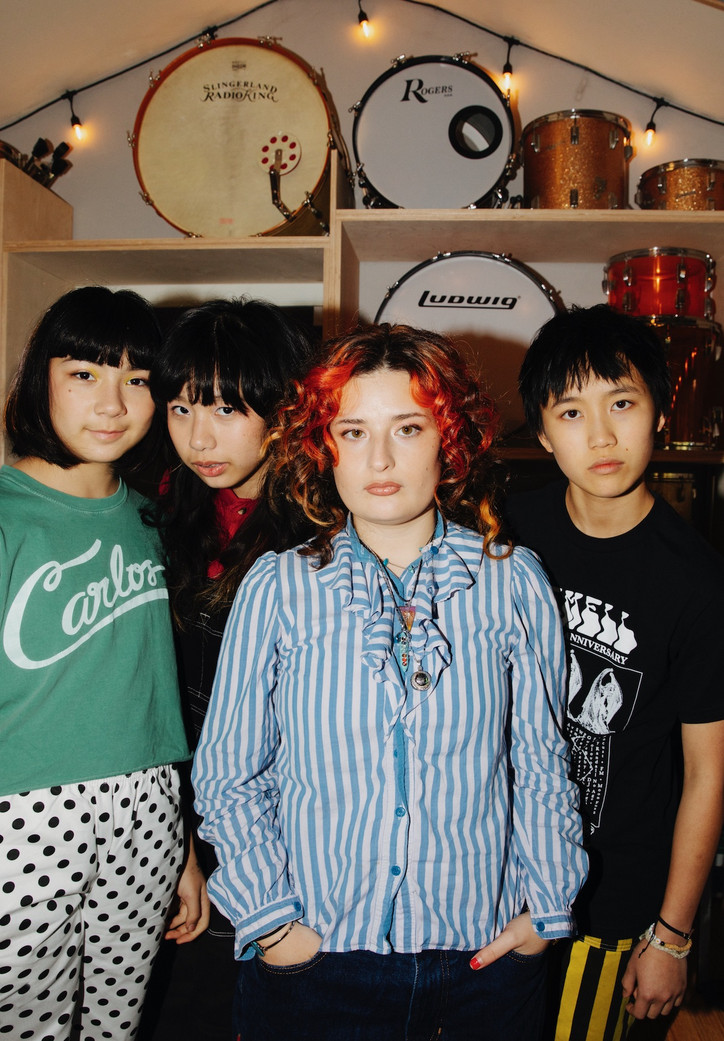
What is your ideal office?
Lucia— It would probably have lighting that could be turned up or down. And a lot of different colored pens. But since I would write and record music in it, it would also be cool if it had a chair that is comfortable to play guitar on, as well as a floor that’s comfortable to play guitar on. Maybe a fluffy rug.
What is your lucky number and why?
Bela— The number 2 is my lucky number because I have 2 cats and they are the best so it’s been my lucky number for eight years and it’s worked!
How do you win in a fight?
Lucia— The power of music is the strongest power.
When was the last time you celebrated?
Mila— Lunar New Year! It’s the year of the rabbit. We ate yummy food and saw family. 大吉大利!
What makes you angry?
Eloise— When people are jerks.
Lyrics to live by?
Eloise— “You say I’m walking around like I own the whole place/ Well I do/ And anybody can have it all, too.” Lois rules.
What was the last thing that made you laugh until you cried?
Mila— Bela makes us laugh until we cry all the time.
Breakfast of champions?
Bela— Scrambled eggs and kimchi or scrambled eggs, beans, and plantains!
What is your Achilles heel?
Lucia— Too much confidence in my time management skills. Which is also procrastination.
What is the last song that affected you emotionally?
Bela— All the songs Lucia has written have made me cry, to be honest, but the last song to emotionally affect me was “Marquee Moon” by Television.
Who is the historical figure you’d most like to collaborate with?
Eloise— Hmm, how about Joey Ramone?
Do you have any rituals?
Mila— Before shows we try to shake it out, which is something we learned from our friends from Bacchae.
What is your weapon of choice?
Eloise— Bass.